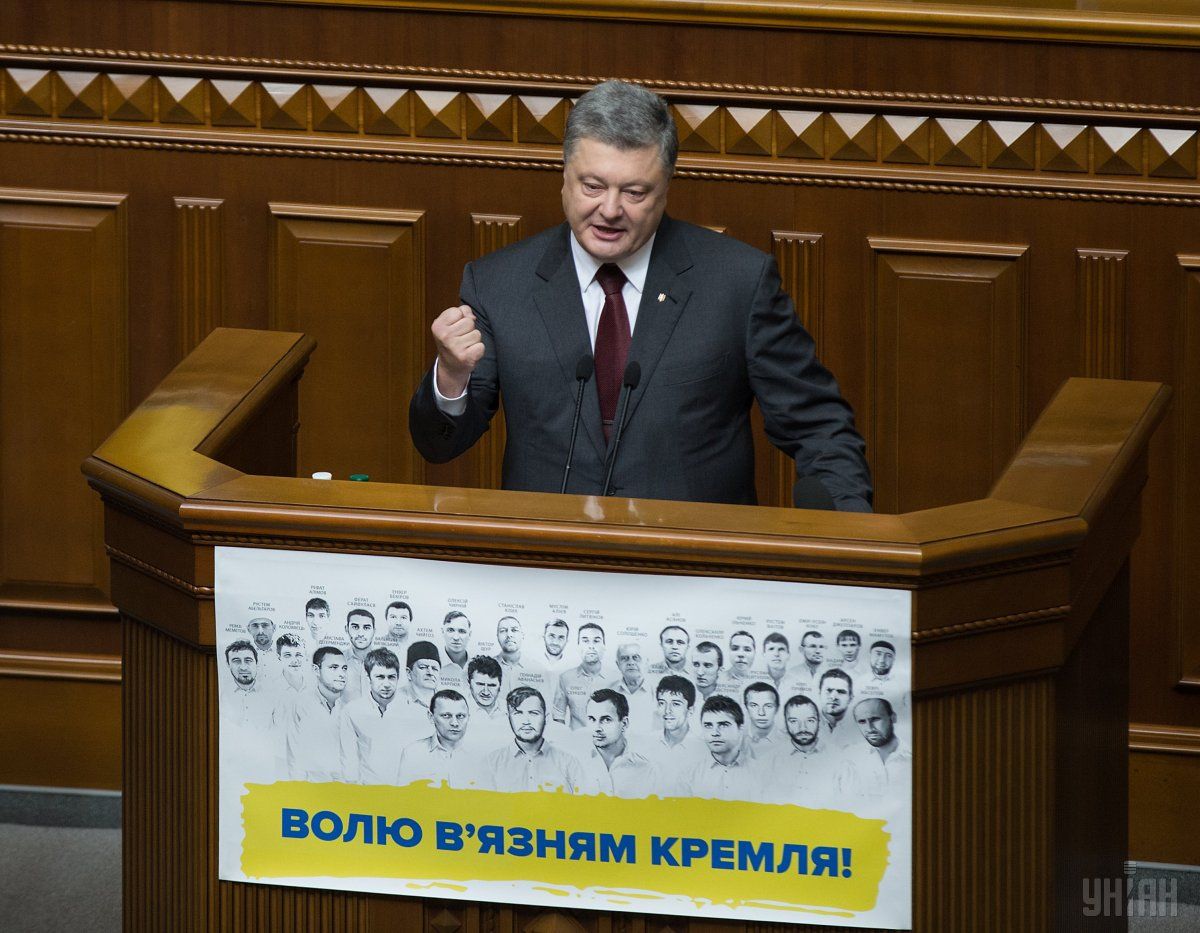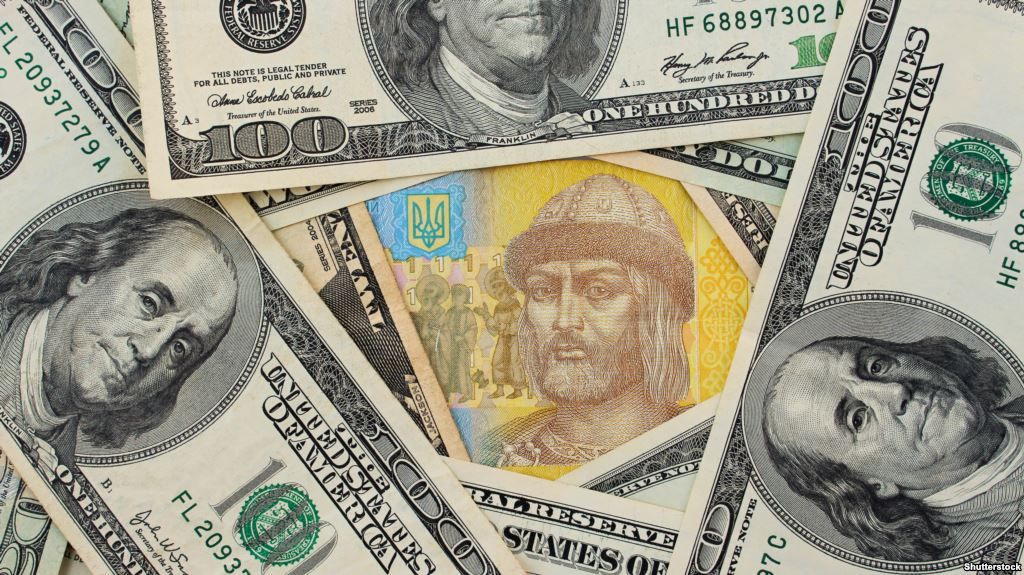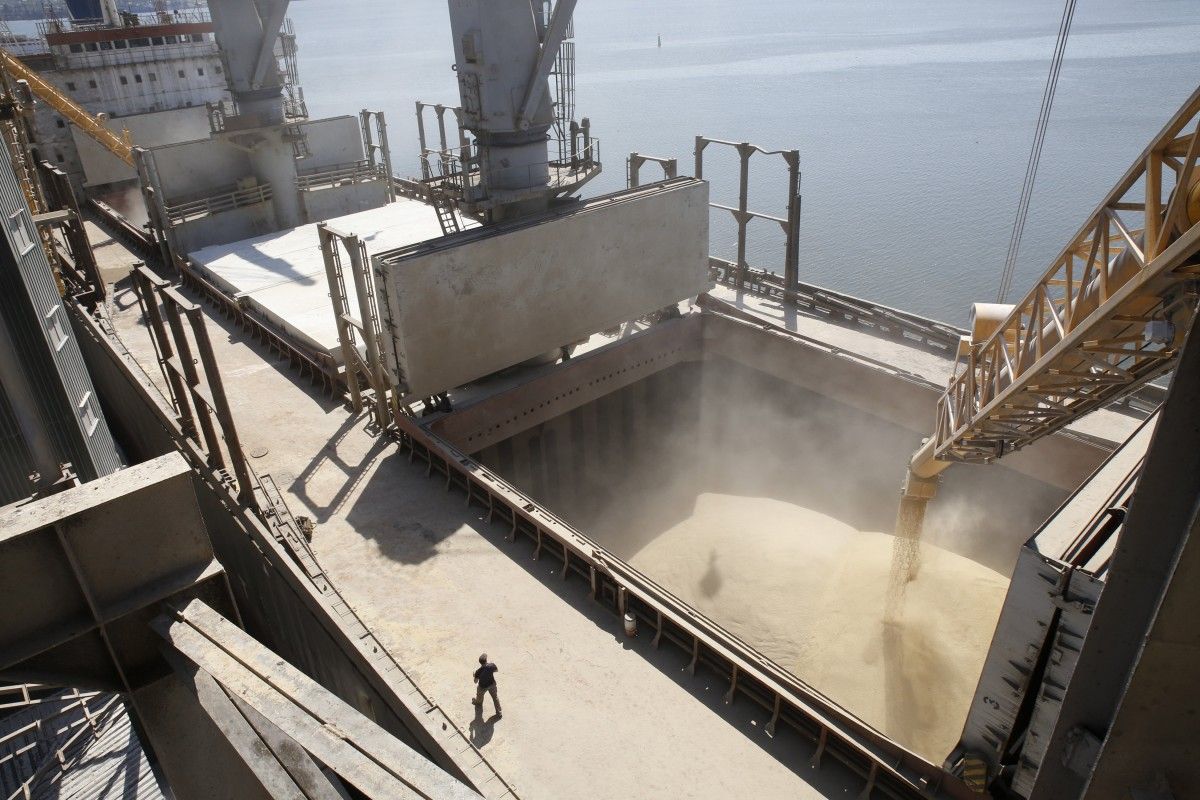
Week’s balance: signal from IMF, President’s address, and hryvnia swing
The International Monetary Fund has finally set a date for the meeting on the Ukrainian issue; the Ukrainian president in his annual address to the Verkhovna Rada has outlined priorities for the country’s international and economic policy; while the hryvnia exchange rate continues to rock - these are the main economic events of the past week.
Ukraine’s key financial partner, the International Monetary Fund, has finally called the date of the executive board meeting on the Ukrainian issue – September 14. The announcement came as a surprise, since the Fund has not sent any clear signals earlier which would indicate its readiness to review the cooperation program, while the Ukrainian officials have been assuring for over a year that the IMF was about to take such move.
On September 14, the main lender will review Ukraine’s implementation of the reform program, adopted in March 2015, assess the changes carried out, submit further recommendations, as well as determine the size of the third loan tranche.
The long-awaited certainty in relation to cooperation with the Fund was preceded by a "freezing" of the IMF-Ukraine program. In the past year, Ukraine has received two tranches of $5 billion and $1.7 billion. In the autumn, Kyiv was to undergo a second revision of the program and receive the third tranche of $1.7 billion. However, the revision of the program was delayed amid political disputes over tax reform and the budget for 2016, and then in connection with the resignation of Arseniy Yatsenyuk’s Government.
Negotiations with the Fund resumed only in late April with the appointment of the new Cabinet, and intensified in May and June. Behind the scenes, the "freezing" of the program was associated with the fact that Ukraine had been hampering the launch of the electronic declaration system and failing to adopt the IMF-required bills.
Although Kyiv was assuring that it had fulfilled all the requirements of the lender, the meeting of the Fund's Executive Board earlier scheduled for late July never took place. August was a traditional holiday period at the IMF, while Ukraine remained in the dark about the fate of the third loan tranche. After the vacation, the IMF held a number of board meetings between Aug 31 and Sep 7, but the Ukrainian issue was not included in the agenda.
Now that the Fund has decided on the date of the board meeting on the Ukrainian issue, it is expected that further recommendations will regard the draft pension reform, tax changes, and upgrades to the fiscal policy concerning the long-term (at least a 3-year) financial planning.
As for the tranche, its volume is likely to amount to $1 billion. However, as it has often been pointed out by Finance Minister Oleksandr Danylyuk, it is not so much the IMF money that Ukraine needs today but the signal for intensification of cooperation. The Fund’s positive decision on the continuation of lending to the Ukrainian economy will allow Kyiv to receive $1 billion in guarantees from the U.S. government, a $600 million loan from the European Union, as well as a $500 million loan from the World Bank, which will be allocated for the purchase of additional volumes of gas for the heating season.
President and land

One of the most significant events of the past week was the traditional annual presidential address to the parliament, dedicated to the opening of a new Rada session. A significant share of the address was devoted to Ukraine's rebuttal of the aggressor and the country’s advances in the field of defense. But Poroshenko also turned his attention to the economy. In particular, he noted its stabilization and urged the government to move to the policy of economic growth.
"Against the backdrop of the achieved macroeconomic stabilization and restoration of economic growth, the Cabinet of Ministers must switch from the policy of survival to the strategy of development, from the macro-financial recovery to the economic growth, from the policy of tightening belts to the household budget stabilization and gradual increase of Ukrainians’ revenues," said Poroshenko.
He urged the MPs not to "stick head in the sand " when it comes to the issue of the farmland sale moratorium, which had been torturing the country. "How to solve this dilemma belongs to your competence, dear members of the Parliament: whether to stick head in the sand and to change nothing or, at last, to establish the land market including all possible safeguards against any negative consequences," said Poroshenko.
He has made it clear that he supports the idea of opening the land market in Ukraine, the lack of which hinders investment in the leading sector of the national economy, which is agriculture.
Commenting on the president’s speech, Deputy Minister of Agrarian Policy and Food Maksym Martyniuk told UNIAN that the main obstacle to the formation of a land market is social tensions, heated by populists. "Unambiguously, it’s populism that stands on the way, because none of the politicians during the period when the discussion on land market has been ongoing (it has been very active in the past year), did not bother to sit down and discuss carefully, unemotionally, without any slogans and populism, what risks are out there and what could be the fuse. None of the problems voiced by populists regarding cheap purchase or excessive concentration of land in the same hands, is unsolvable," said Martyniuk.
Incidentally, the Ministry of Agrarian Policy plans in September to finalize and submit to the parliament a draft law on turnover of agricultural land. The need for such bill is related to the fact that the moratorium on land sale ends January 1, 2017. A working draft provides for the extension of the moratorium for an indefinite period and the introduction of the mechanism of the sale of land lease rights, which could become a collateral, when receiving a bank loan.
Currency swings

Last week, the Ukrainians were focused on the hryvnia exchange rate. Against the background of good news from the IMF, on Wednesday the national currency began to strengthen, albeit tentatively. The dollar was becoming cheaper only by 5-10 kopiykas per day.
By mid-trade Friday, the hryvnia fell just a bit (UAH 26.65 / 26.70 to the dollar), but the National Bank expects that the Fund’s positive decision to revise the program of cooperation with Ukraine will eliminate psychological pressure on the foreign exchange market and support the trend of the hryvnia exchange rate volatility decrease, the first signs of which have been observed in the last few days.
Meanwhile, the NBU continued to hold auctions for the sale of the dollar, thereby supporting the hryvnia. Sales volumes were not significant and allowed to increase international reserves in August by 0.15%, to $14.103 billion. The central bank said that the volume of reserves covered 3.6 months of imports and was sufficient to fulfill the commitments of current operations of the Government and the National Bank.
More confidence is provided by deflation, which was recorded in Ukraine for the third consecutive month. According to the State Statistics Service, the decline in consumer prices in June compared to July was at 0.1%, in July - by 0.2%, and in August - by 0.3%. In January-August, consumer prices rose by only 4.5%. Thus, the National Bank sticks to its current inflation forecast at the level of 12% at the year-end, despite some volatility in the currency market.
Grain money

Another news piece that may affect the expectations of the hryvnia exchange rate has become the forecast volume of grain exports voiced by Minister of Agricultural Policy and Food Taras Kutovyi during a government meeting in 2016-2017 marketing year (July 2016 - June 2017).
According to him, this season’s grain exports will not be less than the record 39.4 million tonnes, delivered to foreign markets in the last marketing year, amounting to some 40 million tonnes.
Meanwhile, the Minister stressed that the record exports may not live up to expectations in terms of revenue due to a stable trend toward falling prices for grains on the world market.
"I think that we will lose in terms of money in the context of a price drop," said Kutovyi.
World prices will have a significant impact on the amount of foreign currency earnings, since agricultural exports (mainly grains and sunflower oil) provides for around 40% of Ukraine’s foreign currency earnings.
The Minister also announced the forecast for gross grain harvest at 62.3 million tonnes. This is 4% more than was harvested last year, but it is still 3% less than Ukrain’s absolute record harvest of 2014 at 63.8 million tonnes. By the way, this year it is rather difficult for the ministry to finalize its forecast. In mid-August, the department of agriculture and technical policy of the agrarian ministry announced expectations for 2016 at 63 million tonnes, after the previous forecast of 61 million tonnes.
The minister also talked about a socially important product - buckwheat. According to him, until the next harvest of buckwheat, the country will have enough of the product to meet domestic demand.
"The forecast harvest is 174,000 tonnes, while domestic consumption is 160,000 tonnes... The excess is 14,000 tonnes.There is no risk in the context of production. That is, if there are problems, they will relate to the level of trading networks," said Kutovyi.
A similar situation is expected with sugar. This year, the Ukrainian plants will produce 1,8-1,85 million tonnes of the sweet product. Given the level of transitional balance, the Ministry expects that the offer in the sugar market will exceed 2 million tonnes, while domestic demand will be lower, at 1.6 million tonnes.
The season of sugar production has already begun. And the autumn field works are on schedule, the material and technical base is provided as planned, and there are no serious threats and risks to carrying out all necessary work, according to Kutovyi.
Alina Zymenko (UNIAN)

